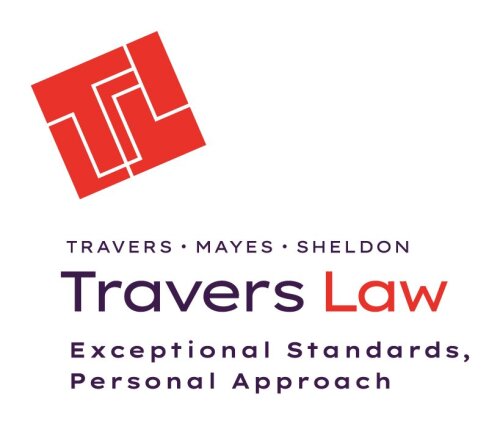Best Appeal Lawyers in Canada
Share your needs with us, get contacted by law firms.
Free. Takes 2 min.
Or refine your search by selecting a city:
List of the best lawyers in Canada
About Appeal Law in Canada
Appeal law in Canada is a crucial part of the judicial process, allowing parties involved in a legal dispute to challenge a court's decision in a higher court. The appeals process is designed to ensure fairness and justice, providing an opportunity to review decisions that may have been based on errors of law or fact. In Canada, appeals can be made in civil, criminal, and administrative cases, and the process varies depending on the jurisdiction and the level of court involved. Understanding the appeals process can be complicated, and seeking professional legal advice is often recommended.
Why You May Need a Lawyer
There are several reasons why individuals may require legal assistance when navigating an appeal. Common situations include:
- If you believe there has been an error of law or fact in your case's decision that significantly affected the outcome, a lawyer can help you identify these errors and present them effectively in an appeal.
- If a significant legal principle or issue is at stake in your case, legal expertise is critical in ensuring these are properly addressed during an appeal.
- The appeal procedures and rules can be highly technical and complex, requiring strict compliance with legal criteria and deadlines; a lawyer can help manage these requirements.
- An experienced lawyer can help assess the strength of your case for appeal and advise on the likelihood of success.
- For businesses, appealing a decision can be necessary to protect assets, reputation, or intellectual property.
Local Laws Overview
Appeal laws in Canada vary across provinces and territories, but there are common elements across jurisdictions:
- Appeal courts in Canada include provincial and territorial courts of appeal, as well as the Federal Court of Appeal and the Supreme Court of Canada.
- There are stringent timelines for filing an appeal, typically ranging from 30 to 60 days from the decision date.
- The appellate process generally involves a review of the trial record and legal arguments-new evidence is rarely introduced.
- Grounds for appeal must typically show a legal error or significant procedural error affecting the trial's fairness or outcome.
- Decisions of appellate courts are binding on lower courts, influencing future decisions and legal interpretations.
Frequently Asked Questions
What is an appeal?
An appeal is a legal process where a higher court reviews the decision of a lower court to determine if there were any errors made during the trial that affected the outcome.
What decisions can be appealed?
Not all decisions can be appealed. Generally, appealable decisions include final judgements, certain interlocutory orders, and administrative rulings. The appeal ability can depend on the nature and context of the decision.
How long do I have to file an appeal?
The time frame for filing an appeal varies by jurisdiction and case type, but it typically ranges from 30 to 60 days from the date of the final judgement or decision.
Can I introduce new evidence during an appeal?
Generally, new evidence is not permitted during an appeal. Appeals are based on the trial record and focus on errors of law or fact rather than re-examining the case itself.
What are the chances of winning an appeal?
The likelihood of succeeding on appeal depends on the case's specific circumstances, particularly the presence and impact of errors in the original trial process. Consulting with a lawyer can provide a clearer assessment.
How long does the appeals process take?
The duration of the appeals process can vary significantly, often taking several months to over a year, depending on the case complexity and court schedules.
Do I need a lawyer to file an appeal?
While you can file an appeal without a lawyer, it is advisable to seek legal representation due to the complexity of legal arguments and strict procedural rules involved in the appeals process.
What costs are associated with an appeal?
Costs can include court filing fees, legal fees, and costs related to preparing the appeal record and legal arguments. Fee waivers may be available for those unable to afford these costs.
Can an appeal court change the decision of a lower court?
Yes, an appeal court can affirm, reverse, modify, or remand the lower court's decision based on its findings regarding errors in the trial process.
What is the role of the Supreme Court of Canada in appeals?
The Supreme Court of Canada is the highest appellate court and hears appeals of national significance. It typically only hears cases with legal importance beyond the immediate interests of the parties involved.
Additional Resources
For further information and guidance, the following resources may be helpful:
- The Canadian Bar Association: Offers resources and directories for finding legal professionals specialized in appeal law.
- The Federal Court of Canada: Provides information regarding federal appeals and procedures.
- Provincial and Territorial Court websites: Offer specific guidance and resources related to local appeals procedures and laws.
- Legal Aid services in your province or territory: May provide assistance or resources if you cannot afford legal representation.
Next Steps
If you believe you need legal assistance with an appeal, consider taking the following steps:
- Consult with a qualified legal professional to review your case and discuss the viability of an appeal.
- Gather all pertinent documentation from your original case, including court transcripts, judgements, and legal briefs.
- Understand and adhere to the deadlines and procedural requirements specific to your case's jurisdiction.
- Evaluate the potential costs and seek financial assistance options if necessary, including exploring legal aid services.
- Prepare a clear and concise explanation of the potential errors or legal principles at issue for your lawyer to address.
Lawzana helps you find the best lawyers and law firms in Canada through a curated and pre-screened list of qualified legal professionals. Our platform offers rankings and detailed profiles of attorneys and law firms, allowing you to compare based on practice areas, including Appeal, experience, and client feedback.
Each profile includes a description of the firm's areas of practice, client reviews, team members and partners, year of establishment, spoken languages, office locations, contact information, social media presence, and any published articles or resources. Most firms on our platform speak English and are experienced in both local and international legal matters.
Get a quote from top-rated law firms in Canada — quickly, securely, and without unnecessary hassle.
Disclaimer:
The information provided on this page is for general informational purposes only and does not constitute legal advice. While we strive to ensure the accuracy and relevance of the content, legal information may change over time, and interpretations of the law can vary. You should always consult with a qualified legal professional for advice specific to your situation.
We disclaim all liability for actions taken or not taken based on the content of this page. If you believe any information is incorrect or outdated, please contact us, and we will review and update it where appropriate.
Browse appeal law firms by city in Canada
Refine your search by selecting a city.















